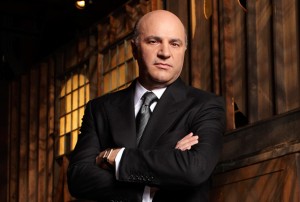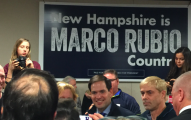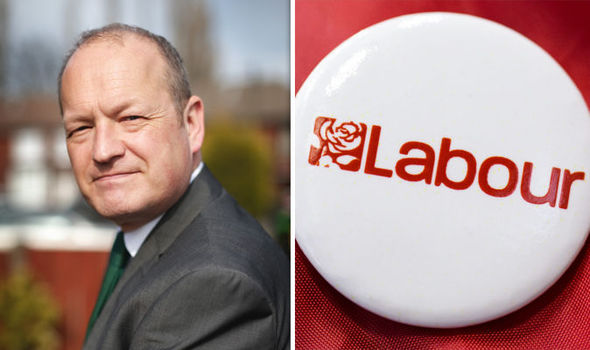
Do we need to talk about Kevin?
The Winnipeg Free Press’s editorialists explain that because politics is a truth-telling contest in which one must always make sense and never ever look ridiculous, both Donald Trump and Kevin O’Leary are profoundly ill-suited for the profession. It was ridiculous for O’Leary to offer to invest $1 million in oil and gas companies if the Alberta Premier Rachel Notley stepped down, for example, because the state of the industry is clearly not her fault.
“That outrageous statement alone should disqualify O’Leary from running for the leadership,” the Toronto Star’s inimitable Bob Hepburn fumes. “It’s an indication he is manifestly unfit for high elected office.” Moreover, says Hepburn, the fact O’Leary even intends to run at all — in a contest that’s more than a year off, the rules for which have yet to be set — “says a lot about the sorry state of the party and the quality of other possible contenders for the job.”
He does realize literally anyone could declare his intention to run for the Conservative leadership, doesn’t he?
Sun Media’s David Akin brings news that O’Leary is equally popular a potential leader among Conservative supporters as Peter MacKay and far more popular than Jason Kenney, according to one Mainstreet Technologies poll. But again. This thing is slated for Spring 2017. Du calme.
Those wacky Sun Media editorialists actually think O’Leary-brand publicity could be a good thing for the Conservatives. Sun Media’s Anthony Furey thinks his candidacy could motivate other party outsiders — perhaps more credible ones — to throw their hats in the ring. “I say go for it, Mr. Wonderful,” is the verdict of Sun Media’s Joe Warmington.
The National Post’s Michael Den Tandt thinks O’Leary’s “candidacy would do timorous, hidebound Ottawa a world of good.” And he thinks O’Leary and Justin Trudeau, “sharing a debating stage, or glaring at one another across the aisle in the House of Commons, would be a perfect matched set — matter and anti-matter, ivory chess pieces vs. obsidian. It would be a political cage match for the ages. It would make, let’s be honest, terrific TV.”
OK, no. Too far. We’ve hardly paid attention to O’Leary, and — pace Den Tandt — we have certainly heard him “utter a public remark that would suggest he is … an imbecile.” (This whole foofaraw started with his imbecilic Doctor Evil moment.) But it’s true, as Den Tandt says, that the Donald Trump comparisons are offside. A real capitalist evangelist would hardly be as offensive a presence in a leadership race as a racist protectionist jackass masquerading as one.
The Free Press’s Mia Rabson trenchantly notes that the Conservatives could be just as susceptible to the idea that recovery is just the right leader away as the Liberals were for so many years … until they found their saviour.
“’If they’ve got the skills, I’d encourage anyone who wants to help us rebuild,” Tony Clement tells Tasha Kheiriddin, writing for iPolitics. But he thinks “after four years of Trudeau, the party may be looking for a little bit more experience and a little bit less celebrity politics.” That’s a good point. This is a funny one: “We have to be true to our values and principles, but how we express those has to be modern and evolve with the times.”
Conservative Party of Canada values and principles? Which ones are those again?
Well, Ken Boessenkool and Sean Speer, writing for Maclean’s, posit that Stephen Harper established “a clear, coherent, and positive conservative philosophy” for the party — “a commitment to economic and personal freedom along with a traditionally conservative conception of key institutions such as the family and one’s local community.” O’Leary doesn’t fit that mould, in their view, because “his presentation of markets and entrepreneurialism more resembles a left-wing caricature of what constitutes conservatism than it represents the proper balance between freedom and tradition and liberty and order.” The Tories need Edmund Burke, not Ayn Rand, in other words.
This is no doubt true. However, after 10 years of extremely questionable adherence to the notions of “economic and personal freedom” under the Conservatives, we would be happy to have someone in the race espousing them more sincerely.
Scott Reid, writing in the Ottawa Citizen, isn’t buying O’Leary as a legitimate candidate. He thinks it’s just a “vanity play.” But he hopes he’s wrong, because he thinks “the spectacle of seeing O’Leary get devoured in the shark tank of federal politics would be the most entertaining reality program of all time” — and would remind us how lucky we are, in the main, to be governed by “talented, well-motivated and extremely hard-working people,” as opposed to the “drooling morons O’Leary would have you believe.”
But un any event, as Pierre Jury notes in Le Droit, O’Leary doesn’t even speak French. So much for that, then.
Doubting Thomas
NDP leader Tom Mulcair declared himself full of leadership beans on Monday. Others aren’t so sure about his long-term prospects.
To stay on he will have to endure the wrath of left-wing Ontario New Democrat MPP Cheri DiNovo, who recently told the Star’s Thomas Walkom “he’s got to go” — not just for losing the election but also for his “balanced budget nonsense.” The irony there is that Mulcair essentially borrowed a right-leaning NDP platform from DiNovo’s boss, Andrea Horwath, and with similar results. DiNovo hasn’t been quiet about Horwath’s leadership, but nor has she called for her ouster. How odd.
Stephane Allard, writing in the Free Press, argues the defenestration of Charleswood-St. James-Assiniboia-Headingley candidate Stefan Jonasson for a Facebook post comparing Haredim to the Taliban represents the Mulcair NDP’s problem in a nutshell: too autocratic, too intolerant of diverse views and too focused on narrow strategic plays at the expense of empowering the party grassroots across the country — such as those in the riding in question, where Allard thinks years of hard work went down the drain with Jonasson’s needless departure.
Mulcairites would call that process professionalization, of course, but the Star’s Tim Harper reminds us it was all supposed to be worth it: “No more moral victories, no more conscience of Parliament. He was chosen to helm the party in 2012 because he was supposed to win.” If he is to stay on, various NDP sources tell Harper, he will have to first of all have to acknowledge his mistakes.
In fact he has already done so to La Presse’s Vincent Marissal: he thinks the party’s economic message was muddled, and had no answer to the Liberals’ surprise promise of deficits; they were out-advertised and out-focus-grouped; and while he would not change his position on the niqab, he says he would “find another way to say it” if he had it to do over again. We think he said it pretty well the first time, really.
Anyway, back to Tim Harper, who has yet more tasks for Mulcair courtesy of unnamed Dippers. He must “show he can work as a team player,” “lose the tendency to double down when cornered,” “prove he can bring progressives back into the … fold and … show he has a plan to become the true progressive option both in the Commons and in the country.” And he must do all these things even though nobody has the stones to go on the record and “there is no organized opposition to (him).”
In Maclean’s, Paul Wells reminds us of the many very good reasons to give Mulcair a shot at another election, beginning with the party’s “steady and perhaps even inexorable” rise in fortunes: setting aside the 2011 Orange Wave, “the NDP has risen from 19 seats in the 2004 election to 29 in 2006, 37 in 2008, and 44 in the 2015 election last October” —and the Orange Wave wouldn’t have happened had they ditched Jack Layton after three disappointing election results, as many urged them to for reasons not dissimilar to the ones currently dogging Mulcair. He still has everything going for him that he ever did, with the addition, Wells suspects, of some important lessons from the campaign trail. And moreover, the only names people are pitching Wells as replacements, Alexandre Boulerice and Ryan Meili, are neither compelling nor, in fact, campaigning.
The Star’s Chantal Hébert is skeptical even of the most basic case for Mulcair staying on: his cachet in Quebec. “For all of Mulcair’s strengths, the NDP — on his watch — has remained a bit player in his home province,” for the simple reason that the party has been silent on “most of the debates that have been central to Quebec politics over the past five years.” Cachet didn’t help Gilles Duceppe much, Hébert observes. And she doesn’t buy the “no obvious alternative” narrative either. “Having watched the likes of former MP Megan Leslie — to name just one New Democrat — in action, I find it hard to believe that someone like her would not be up to the task of leading the party to renewal.”
Leader, schmeader. The NDP’s real problem, Andrew Perez argues in the Edmonton Journal, is where on earth they fit in “a de-facto two-party system characterized by a more moderate centre-right Conservative Party facing off against the most left-leaning Liberal administration since Pierre Trudeau’s 1972-1974 minority government” — an administration that may well implement things Dippers have been demanding for ages.
Moreover, Tom Parkin observes in the Sun Media papers, “many surveys show NDP supporters are the least partisan voters.” Thus, he thinks “now’s the time to set a plan to strengthen loyalty to the NDP’s style of social democracy.” Whatever that is.
via : Donald Trump – National Post


